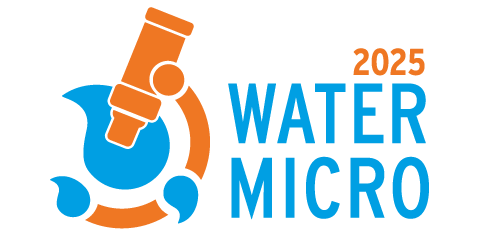Henry-Michel Cauchie1, Blandine Fauvel1, Leslie Ogorzaly1, Wim Meijer2, Márta Vargha3, Tarja Pitkänen4, Jose Antonio Baz Lomba5, Pikka Jokelainen6
1Luxembourg Institute of Science and Techology, Belvaux, Luxembourg. 2University College Dublin, Dublin, Ireland. 3National Center for Public Health, Budapest, Hungary. 4The Finnish Institute for Health and Welfare, Helsinki, Finland. 5Norwegian Institute of Public Health, Trondheim, Norway. 6Statens Serum Institut, Copenhagen, Denmark
Introduction
This proposed side-event is an outreach activity of the EU-WISH Joint Action. This European project entitled “EU-Wastewater Integrated Surveillance for Public Health” gathers 62 participants from 26 countries in Europe with the aim to strengthen capacity to prevent, prepare for and respond rapidly to serious cross-border health threats. The considered threats are mainly pathogenic microbes and viruses and the link with the topic “Water as information source for health” of the conference is strong.
In this side-event, we want to highlight the multiple facets of wastewater and environmental surveillance of waterborne pathogens, notably aiming efficient epidemic preparedness. It includes not only knowledge and know-how about water microbiology but also many other aspects linked to capacity building, standardization, networking, communication between actors and sustainability.
The aim of this 1.5 hour-side event is to conduct an enriching conversation between participants on the importance of the different facets of (waste)water surveillance and epidemic preparedness. Serious gaming appears to be an adequate way to get participants actively engaged and motivated.
Side event objective
The side-event will consist of a collaborative, scenario-based simulation. This serious gaming will consider possibilities of wastewater-based surveillance in mitigating an emerged public health crisis caused by an infectious agent emerging simultaneously in different countries. Our serious gaming session specifically aims at: • Inform participants about the ongoing EU-WISH Joint Action; this will be the common thread of the session • Improve decision-making, critical thinking, and problem-solving abilities of the participants • Stimulate connections between the participants, which is a key to efficient preparedness • Enhance knowledge about the connections between the multiple facets of epidemic preparedness and management • Explore and promote the use of serious gaming as a tool that can be implemented at a local, regional, national or international level to be prepared and be ready for public health crisis management • Allow feedback on the activities of EU-WISH
Methodology/format
The script of the scenario will of course evolve in the months of preparation before the side-event; but the starting pitch can be as follow. Outbreaks of an acute affection are observed in several cities, which appears to be caused by a virus, likely with different variants. These variants differ in their excretion rates in urine and feces (unknown fact at the very beginning of the game) and are present in different proportions in the different countries. Therefore, the correlation between clinical cases and the dynamics of viral targets in the wastewater is very fuzzy. This in turn raises doubts about the efficiency of wastewater to provide useful data about the progression of the pandemic. How will all this evolve? Different roles will be attributed to groups of participants: researcher, lab manager, member of public health authority, journalist. The role of the participants is randomly drawn. Participants in the EU-WISH project will be present in each group to share their experience at the same level as other participants. A group of animators of the game will guide the groups between the different steps. An initial review of the epidemic progress and available knowledge about the pathogen by the animators will kick off the work in breakout sessions. Each group will then define their key actions for progressing in the crisis during the breakout sessions and will share and discuss them afterwards during plenary press conferences. Two iterations of this process will hopefully lead to significant advances in the crisis management.
Expected outcome
By making decisions during the game, participants will obtain practical experience in considering the defining surveillance methods, understanding epidemiological data, and responding to real-world situations under pressure. A part of the exercise focuses on the role of proper communication between scientific data provider and governmental entities in such crises. Serious gaming involves collaborative teamwork, share insights, and work together to solve public health issues. This fosters communication, decision-making, and leadership skills that are crucial in health surveillance. Participants can explore scenarios without real-world consequences, providing a risk-free space for learning from mistakes. For EU-WISH, the expected outcome is that participants know and understand how this project is consolidating strategies for long-term monitoring of endemic health-related signals at population level and for developing proper epidemic preparedness. For the project, the number of new connections with actors outside the consortium will be a key performance indicator.
